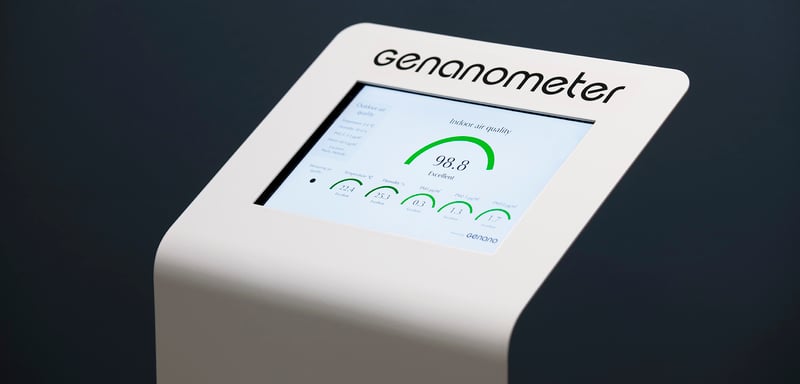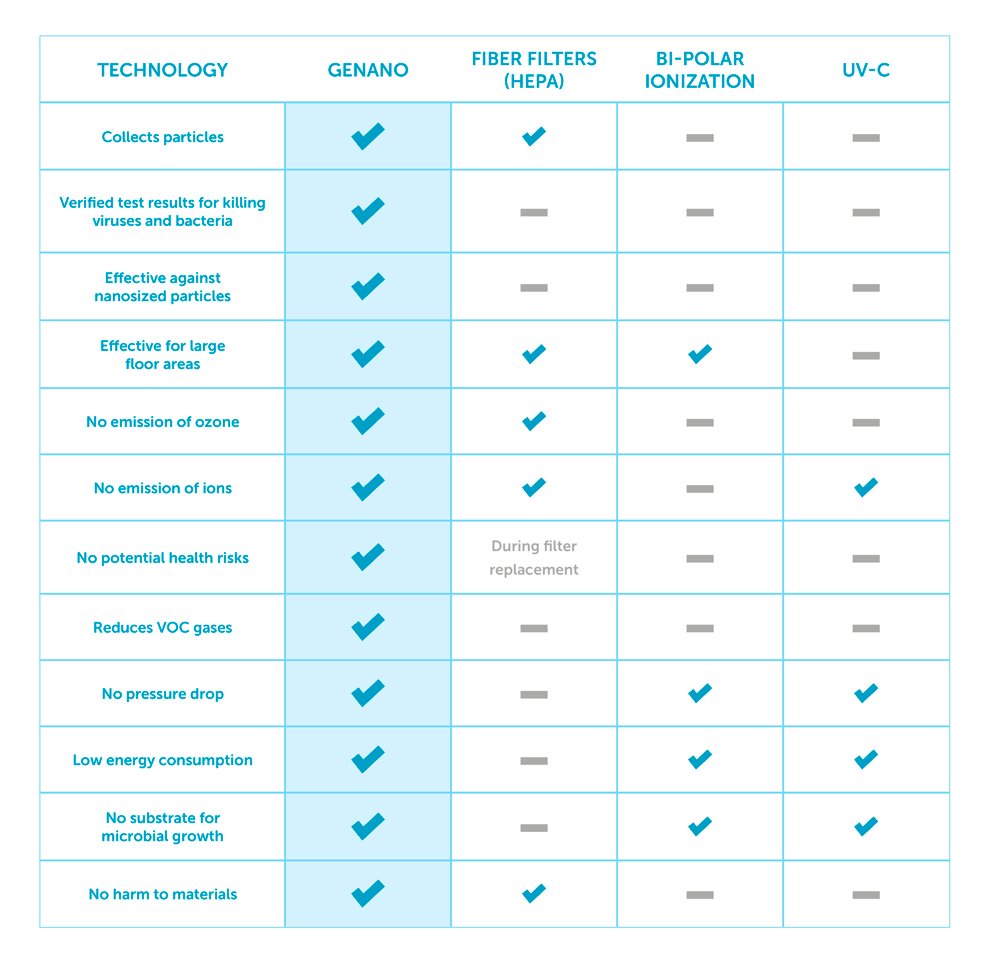Sensing indoor air quality is instinctive and very individual. When a Genanometer is placed on an observable position, it makes indoor air quality transparent to everyone.
Clean indoor air is a fundamental right. We spend about 90% of our time indoors and indoor air quality is of great importance to the efficiency and comfort of your day. Genanometer is a measurement system for key indoor air quality factors and an index based on long experience and generally established limit values.

A summary of air quality based on Genano's long experience and knowledge as well as global air quality recommendations. All measured values affect the whole, where safety and capacity of the premises, the comfort and the structural needs are taken into account.
According to the recommendations, the target temperature of the office during wintertime is 21.5 °C and the room-specific adjustability is 20–23 °C. Due to individual differences, only 85 percent are satisfied with even the best thermal conditions.
The relative humidity percentage of the indoor air is not a stable constant value but a constant movement. For example, at 5 °C the maximum moisture content of the air is about 4.8 g / m3 and at 20 °C about 17.3 g / m3. If the relative humidity in the air is 50%, then the moisture content is half of the maximum amount, ie 8.65 g / m3.
The humidity percentage changes according to seasonal variations and with home activities, i.e. it requires monitoring and balancing. In summertime the air humidity rises sometimes up to 70%. In winter, humidity exceeding RH 45% humidity can already cause moisture damage to structures. Dry air is not harmful to buildings, but people may experience symptoms when the humidity drops below 30%.
Respirable particles and fine particles are derived from e.g. combustion reactions, traffic, energy and industrial emissions, people, interior materials and dust. Small particles have been found to increase symptoms in children and asthmatics, and hospital admissions as well as mortality of respiratory- and heart patients. In order to prevent the health effects of particulate matter, it is not possible to determine a concentration below which no harm would occur on the basis of current research data. Ultra-small PM1 and fine particles (PM2.5) are thought to be the most harmful to health because they travel deeper into the lungs than larger particles.
Before industrialization, carbon was captured by about 0.028 percent, or 280 parts per million. At the end of 2019, the average carbon dioxide concentration in the atmosphere was 0.04 percent, or 411 ppm. Indoor carbon dioxide comes mainly from outdoor air, where the carbon dioxide concentration is about 400 ppm. Indoors, the main source of carbon dioxide is human breath.
When the carbon dioxide concentration rises high enough, it begins to affect the respiratory center and as a result, respiration accelerates. Too high a concentration of carbon dioxide in the indoor air causes a feeling of stagnation, fatigue, headaches and these inevitably result in a decrease in work efficiency and comfort.
Patented technology gets rid of living microbes in indoor air
Automatic self washing, no clogging replaceable filters, always top performance
Removes even the nano sized particles that are most harmful for health
Producing healthy breathing air in buildings with indoor air problems
Steady air flow due to the lack of clogging fiber filters ensures constant air purification performance
Genano's microbe killing technology is tested and proven in several impartial testing laboratories
